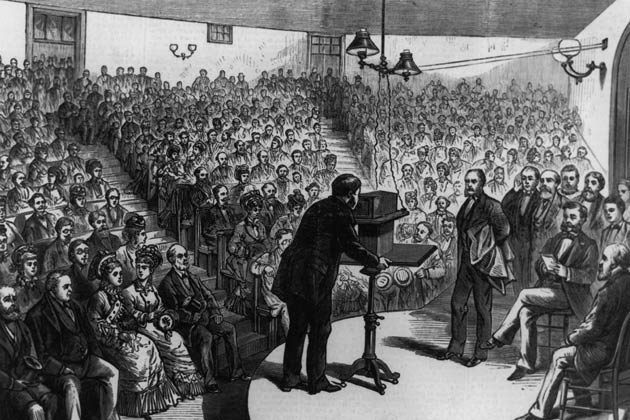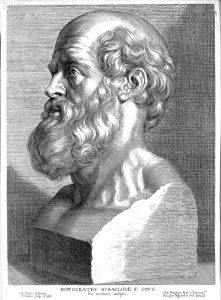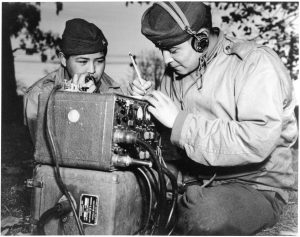Lyceums combined education and oratory, two passions of the mid-nineteenth century, in the 1830’s to create a movement that was both popular and educational. The name lyceum comes from the ancient building in Greece where Aristotle taught. However, in the United States, lyceum did not describe a building, but a revolutionary phenomenon. Josiah Holbrook, the father of the lyceum movement, created this ideology to bring knowledge to adults.1
Holbrook himself gave a series of lectures to an audience of farmers and mechanics in Millbury, Massachusetts, in 1826. He taught instructions in science, politics, art, and literature. From this small project, the lyceum movement quickly spread throughout Massachusetts, New England, and other parts of America.2

Lyceum organizers used public libraries, vacant schools, and other such spaces for classroom locations. They recruited leading scholars, politicians, and orators of their time to provide entertainment and instructions to adult audiences. Topics such as politics, science, art, literature, history, and philosophy were immensely popular.3
The lyceum in Massachusetts sponsored diverse lectures in 1838 that included “Causes of the American Revolution,” “The Sun,” “The Legal Rights of Women,” and “The Satanic School of Literature and Reform.” The lyceum offered hundred of speeches and featured interesting lecturers such as geologist Benjamin Silliman from Lowell Institute in Boston, naturalist Louis Agassiz, Russian traveler Geroger Kennan, and writer-physician Oliver Wendell Holmes. In 1837 and 1838, approximately thirteen-thousand people attended the Lowell Lectures in Massachusetts.4

The lyceums opened their lectures to everyone. There were only two rules set in place for attending the lectures; first, attire was to be appropriate, and second, no one was allowed to leave the hall during a lecture. While lyceums served as entertainment for adult audiences, their main purpose was to educate.
As the United States became increasingly preoccupied with diverse ideas and battles over slavery, the lyceums served as forums for discussion of public controversies. For instance, in Springfield, Illinois, in 1838, Abraham Lincoln gave a series of speeches to denounce the lynching of slaves in Mississippi and an attack on a free black man in St. Louis. He lectured in lyceums on how the reverence for the laws should be the political religion of the nation.5
In the years following, prominent abolitionists such as William Lloyd Garrison, Wendell Philips, Frederick Douglass and others became the most popular orators at lyceums. Douglass traveled widely to speak at lyceums. He was featured in lyceums in Central Ohio, the Islands of Nantucket, Massachusetts, and in England. Douglass became one of the most widely admired public figures of his time through his mesmerizing speeches at the lyceums.6

Lyceums were places for men and women to educate and improve themselves by listening to knowledgeable speakers who covered topics in their field. The lectures both reflected and helped strengthen the growing interest in education in the 1800s in America. Lyceums definitely helped the expansion and improvement of the public school system in America. Moreover, they marked the beginning of many decades of efforts to extend the benefits of education to adults. They formed the lecture system of education, which is the staple of university education even today. At the heart, lyceums helped to spread explosive ideas about slavery, freedom, and union.7
- Vyacheslav Khrapak, Reflections on the American Lyceum: The Legacy of Josiah Holbrook and the Transcendental Sessions (Universiy of Oklahoma, 2014), 48. ↵
- Alan Brinkley, American History: Connecting with the Past Volume 2, 15 edition (New York: McGraw-Hill Education, 2014), 138. ↵
- Brinkley, American History: Connecting with the Past, 138. ↵
- Khrapak, Reflections on the American Lyceum: The Legacy of Josiah Holbrook and the Transcendental Sessions, 52. ↵
- Angela Ray, “Learning leadership: Lincoln at the lyceum,” Rhetoric & Public Affairs 13, (2002): 365. ↵
- Angela Ray, “Frederick Douglass on the Lyceum Circuit: Social Assimilation,” Rhetoric and Public Affairs 5.4 (2002): 625. ↵
- Brinkley, American History: Connecting with the Past, 138. ↵



31 comments
Nahim Rancharan
It was a very informative article. It was interesting to see how Lyceums have progressed and made an impact on other platforms in which people could share and introduce new ideas such as forums, expos, and symposiums. Although it may not seem as significant, Lyceums did have a major impact on American Society during that time, they proved to provide the setting and the platform in which societal issues could have been discussed and debates. Lyceums provided the stage upon which people could tackle the issues that plagued the American Society and it is great that this article provided an insight as to the usefulness of such an event! Great Job on the Article!
Sam Vandenbrink
Its very interesting reading about something you had no idea even existed! Lyceums is a great way to educate people, anyone can go at any time is awesome. I believe if a government really cares about its people they will supply an ability to grow knowledge for each individual. The power of knowledge can really make a nation, and possibly break one. This is something that anyone could use to there advantage in there free time! great article very informative!
Luke Trevino
Amazing article! I had only had a breif overview of Lyceums before this essay. I mostly thought they discussed local issues when they did way more then that such as: science and art. I was also amazing that Fredrick Douglas spoke at these Lyceums and was a very well know speaker. It also crazy that Abraham Lincoln used Lyceums to talk about political issues. Overall, very well written and researched essay.
Nelson Smithwick
This was a very interesting article, I’d imagine that the creation of these Lyceums was a hold over from the older United States fascination with Greek culture. It’s a shame that these didn’t catch on and remain in practice in the U.S., although I suppose you could make the argument that TED talks and speaker panels are a modern rendition of these Lyceums.
Tyler Sleeter
Really informative article. I also had not heard of lyceums until reading this article. I think that it is admirable that people would attend lectures in order to increase their knowledge on a particular subject. I found it interesting that their main purpose was to educate, but it makes sense since news could only be reported through print media at this time, and that was not always accurate or unbiased. Instead people could give lectures to inform the public on hot topics they needed to know about. What a great idea.
Nataly Solis Chavez
Prior to having stumbled across your article I had never even heard of Lyceums. It’s nice to hear that innovators from the past put their best foot forward for the educational advances we see today. What surprised me even more is how even Abraham Lincoln gave a speech regarding the mistreatment of slaves during his presidency. Great research and article!
Oscar Portillo
I remember in a class learning about how philosophers taught in lyceums and performed other activities such as debate. It is interesting to know that the U.S. employed that some time ago. If these lyceums were the foundation of our educational system, then they deserve much more credit than they get. These lyceums sound like an institution that we should reinstate since our educational system since it is in sore need of reform. Hopefully, President Trump can help institute reforms like lyceums that help men and women develop crucial skills.
Cameron Mays
Like most other people whom have commented on this article, I had never heard of Lyceums before reading this article. However, this makes me biased on critiquing because I was just amused with the idea of a Lyceum and what they gave to the community that I wasn’t paying that much attention to how it was written and the content it covered. In other words, I didn’t notice many errors in terms of expressing the content, therefore I think the article was quite good. Thanks for writing.
Christian Lozano
I had never heard of lyceums until reading this article. As a person who loves speech and philosophy, I crave to be able to go back in time and witness firsthand how the interactions at these lyceums went. Much like taverns, information in Early America was spread like wildfire through these lyceums.
Nicolas McKay
This was a great article, I had never heard of the Lyceums before, but I can easily see how they were such an amazing and evolutionary idea. The idea that they soon gave way to the public school system is also mind blowing. As I was reading the article I also began to almost relate to the TED Talks we have today, perhaps just another example of the influence the Lyceums have had on our society.